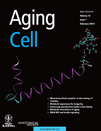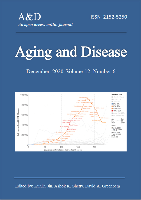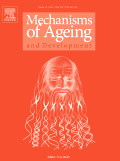
GERONTOLOGY
Scope & Guideline
Bridging Disciplines in Gerontological Studies
Introduction
Aims and Scopes
- Molecular Mechanisms of Aging:
Research on the biochemical and genetic pathways involved in aging, including cellular senescence, telomere biology, and oxidative stress. - Interventions for Healthy Aging:
Exploration of dietary, pharmacological, and lifestyle interventions that promote longevity and mitigate age-related decline. - Impact of Microbiota on Aging:
Investigating the role of gut microbiota and other microbiological factors in health outcomes and aging processes. - Neurodegeneration and Aging:
Studies focused on the neurobiological changes associated with aging, including the impact of aging on cognitive function and neurodegenerative diseases. - Sex Differences in Aging:
Research on how biological sex influences aging processes, health outcomes, and responses to interventions. - Integrative Approaches to Aging Research:
Utilization of systems biology and network pharmacology to understand aging and develop comprehensive therapeutic strategies.
Trending and Emerging
- Cellular Senescence and Senolytics:
There is a notable increase in research focusing on cellular senescence and the therapeutic potential of senolytics—agents that selectively eliminate senescent cells to improve healthspan. - Role of Nutrition in Aging:
Emerging studies emphasize the impact of dietary components and caloric restriction mimetics on aging, highlighting their potential to modulate biological aging processes. - Biomarkers of Aging:
The development and validation of biomarkers that can assess biological age and predict health outcomes are increasingly prominent, with a focus on molecular and cellular indicators. - Microbiome and Aging:
Research on the gut microbiome's influence on aging and age-related diseases is gaining momentum, exploring its role in systemic health and longevity. - Interdisciplinary Approaches to Aging Research:
There is a growing trend towards integrative research methodologies, combining insights from genetics, biochemistry, and environmental sciences to address complex aging mechanisms.
Declining or Waning
- Traditional Gerontology:
There appears to be a shift away from traditional gerontology themes, such as demographic studies and purely observational aging research, towards more molecular and interventional studies. - Purely Epidemiological Studies:
The journal has seen fewer publications focused solely on epidemiological aspects of aging without accompanying mechanistic insights or therapeutic implications. - Aging and Single Disease Models:
Research that examines aging effects in isolation with a single disease focus is declining, as there is a growing emphasis on the interplay of multiple age-related conditions.
Similar Journals

Nature Aging
Connecting Scholars to Shape the Future of AgingNature Aging, published by SPRINGERNATURE in Germany, stands as a premier journal dedicated to advancing the field of aging research. With high-ranking performance indicators, including a Q1 classification in Aging, Geriatrics and Gerontology, and Neuroscience (miscellaneous), this journal emphasizes the interdisciplinary nature of aging studies. Its Scopus rankings highlight its impact, achieving remarkable positions such as #1 in Neuroscience and #2 in both Geriatrics and Biochemistry for aging-related research. Although currently not open access, Nature Aging provides a wealth of cutting-edge research and critical reviews that aid researchers and practitioners in understanding the complexities of aging mechanisms and their implications. As the field continues to evolve from 2021 through 2024, this journal not only facilitates the dissemination of knowledge but also fosters innovative discussions that propel the science of aging forward. Join the vibrant community of scholars and professionals dedicated to solving the challenges associated with aging by engaging with the content published in Nature Aging.

REJUVENATION RESEARCH
Advancing the Science of Aging and RenewalRejuvenation Research is a premier journal dedicated to the advancing field of gerontology and aging research, published by Mary Ann Liebert, Inc. Established in 2000, the journal serves as a pivotal platform for the dissemination of scholarly articles that explore the complex mechanisms of aging and innovative approaches to rejuvenation. With an impact factor reflective of its robust scholarly contributions, the journal currently holds a Q4 ranking in Aging and a Q3 ranking in Geriatrics and Gerontology, showcasing its relevance in the academic community. This periodic publication, welcoming open access submissions, invites researchers, professionals, and students alike to engage with cutting-edge findings that could shape future geriatric practices and enhance quality of life. The journal underscores the importance of interdisciplinary collaboration, encouraging explorations that intersect with biochemistry, genetics, and other vital areas of study. Through its ongoing commitment to high-quality research, Rejuvenation Research remains a critical resource for understanding the biological underpinnings of aging and the strategies to mitigate its effects.

CELL
Unraveling the complexities of life at the molecular level.CELL is a premier academic journal in the field of Biochemistry, Genetics, and Molecular Biology, published by CELL PRESS. Founded in 1974, this esteemed journal has steadfastly contributed to advancing our understanding of cellular processes and organisms, making it integral for researchers and practitioners alike. With an impressive impact factor that places it in the Q1 category of its field, CELL ranks #1 out of 221 in general biochemistry and genetics, achieving a remarkable 99th percentile in Scopus rankings. Though it is not currently an open-access publication, the journal regularly disseminates high-quality research that impacts the scientific community significantly. Researchers, students, and professionals seeking to stay at the forefront of innovative discoveries and methodologies in molecular biology will find CELL an invaluable resource through its comprehensive articles and reviews.

Innovation in Aging
Fostering collaboration to tackle aging's most pressing issues.Innovation in Aging, published by Oxford University Press, is a prestigious open-access journal dedicated to advancing the understanding of aging and its implications on health and society. Established in 2017, the journal has rapidly gained a strong reputation within the academic community, achieving Q1 rankings in multiple categories including Health Professions, Health (Social Science), and Life-span and Life-course Studies, with impressive Scopus rankings that place it among the top journals in its field. With an emphasis on innovative research and interdisciplinary approaches, Innovation in Aging aims to foster dialogue among researchers, professionals, and policymakers, addressing key challenges and breakthroughs in gerontology, geriatrics, and related disciplines. As an open-access journal, it provides accessible content to a wide audience, supporting knowledge dissemination and collaboration to improve the quality of life for aging populations. This journal is essential for those looking to stay at the forefront of aging research and its impact on health and society.

AGING CELL
Transforming Understanding of Aging Through Open AccessAGING CELL is a premier peer-reviewed journal published by Wiley, specializing in the rapidly evolving field of aging research and cell biology. Established in 2002 and enjoying an impressive track record as evidenced by its Q1 ranking in both Aging and Cell Biology categories for 2023, the journal has become a vital resource for researchers and professionals alike. With a significant impact factor highlighting its scholarly influence, AGING CELL offers an open access model since 2014, ensuring that groundbreaking research is accessible to the global community. The journal covers a wide array of topics related to the mechanisms of aging at the cellular and molecular levels, making it essential reading for anyone invested in understanding the complexities of aging processes and their implications for health and disease. With a broad international readership based in the United Kingdom and beyond, AGING CELL is dedicated to disseminating high-quality research that impacts scientific understanding and fosters advances in the field.

European Journal of Geriatrics and Gerontology
Innovating care practices through rigorous research.Welcome to the European Journal of Geriatrics and Gerontology, a peer-reviewed platform dedicated to advancing knowledge and research in the fields of geriatrics and gerontology. Published by GALENOS PUBL HOUSE, this journal serves as a critical resource for researchers, healthcare professionals, and students who are involved in the care, treatment, and study of elderly populations. Since its inception in 2019 and running through 2024, the journal aims to foster interdisciplinary collaboration and disseminate innovative research that addresses the unique challenges faced by older adults. With an ISSN of 2687-2625, the journal is classified in the Q4 quartile of the Geriatrics and Gerontology category, signifying its emerging influence within the academic community, despite its current Scopus ranking of #113 out of 116, reflecting a rich opportunity for growth and visibility. Although the journal is not open access, it maintains a commitment to scholarly rigor and quality. Engage with the European Journal of Geriatrics and Gerontology to contribute to and learn from the evolving discourse in aging research.

JOURNALS OF GERONTOLOGY SERIES A-BIOLOGICAL SCIENCES AND MEDICAL SCIENCES
Pioneering Studies at the Intersection of Biology and MedicineJournals of Gerontology Series A: Biological Sciences and Medical Sciences, published by Oxford University Press Inc, stands at the forefront of aging research, bridging the gap between biological sciences and medical practices to address the complexities of gerontology. With an impressive impact factor reflecting its significant contribution to the field, this journal is recognized within the Q2 quartile in Aging and the Q1 quartile in Geriatrics and Gerontology for 2023, evidencing its high-quality scholarship and relevance. Researchers and professionals will find valuable insights through its comprehensive coverage of aging-related topics, informed by cutting-edge studies ranked among the top in their category—Rank #11 in Geriatrics and Gerontology and Rank #9 in Aging on Scopus. The journal aims to disseminate innovative research that can impact health care practices and enhance the quality of life in older populations. For those engaged in studies of aging, this journal offers a vital platform for sharing knowledge and advancing the understanding of biological and medical sciences as they pertain to gerontology.

Aging and Disease
Exploring the intersection of longevity and health.Aging and Disease is a leading open-access journal published by the International Society on Aging and Disease, dedicated to advancing the understanding of aging and its associated diseases. Since its inception in 2010, the journal has established itself as a vital resource for researchers and practitioners in the fields of Geriatrics, Neurology, Cell Biology, and Pathology. With an impressive Q1 ranking across multiple categories and a robust position in Scopus rankings, including ranks in the top 3% in Geriatrics and Gerontology, it showcases high-quality research that addresses the complexities of aging processes. Each issue presents original articles, reviews, and insights aimed at improving health outcomes for the aging population. The open-access model ensures that valuable research findings are readily available to a global audience, fostering collaboration and innovation. As a go-to publication for scholars, healthcare professionals, and students, Aging and Disease significantly contributes to the multidisciplinary dialogue surrounding aging and its health implications.

Lancet Healthy Longevity
Catalyzing Change in Aging and HealthThe Lancet Healthy Longevity is a premier journal published by Elsevier that focuses on advancing our understanding of healthy aging and longevity through interdisciplinary research. Established in 2020, this Open Access journal is committed to disseminating innovative findings that enhance public and individual health, making it accessible to a global audience. The journal is proud to be recognized with a Q1 ranking in critical categories such as Family Practice, Geriatrics and Gerontology, Health (Social Science), and Psychiatry and Mental Health, indicating its prominent role in shaping contemporary discourse in these domains. As one of the leading titles within the field, it holds an influential position in Scopus rankings, with top placements in Geriatrics and Gerontology as well as Family Practice, thereby reaching the 99th percentile of scholarly impact. The Lancet Healthy Longevity aims to foster collaboration among researchers, healthcare professionals, and policymakers to promote healthy longevity, ultimately supporting the growing aging population worldwide. With its commitment to high-quality research and global accessibility, this journal is a vital resource for those dedicated to improving health outcomes across the lifespan.

MECHANISMS OF AGEING AND DEVELOPMENT
Decoding the Secrets of Life's ProgressionMECHANISMS OF AGEING AND DEVELOPMENT is a premier academic journal published by Elsevier Ireland Ltd, specializing in the fields of aging and developmental biology. With an impressive Q1 ranking in both categories as of 2023, this journal serves as a vital platform for researchers, professionals, and students seeking to advance their understanding of the complex biological processes that underlie aging and development. Since its inception in 1972, the journal has steadily contributed to the accumulation of valuable knowledge, maintaining a history of rigorous peer-reviewed articles that explore genetic, molecular, and cellular mechanisms impacting aging and development. Its high Scopus rankings—notably 5th in Aging and 8th in Developmental Biology—underscore its significance in the scientific community. While the journal follows a traditional publishing route without Open Access options, it remains an indispensable resource for those dedicated to the investigation of life’s aging processes and developmental phenomena. With publication projected through to 2024, the MECHANISMS OF AGEING AND DEVELOPMENT continues to shape the discourse within these critical research domains.